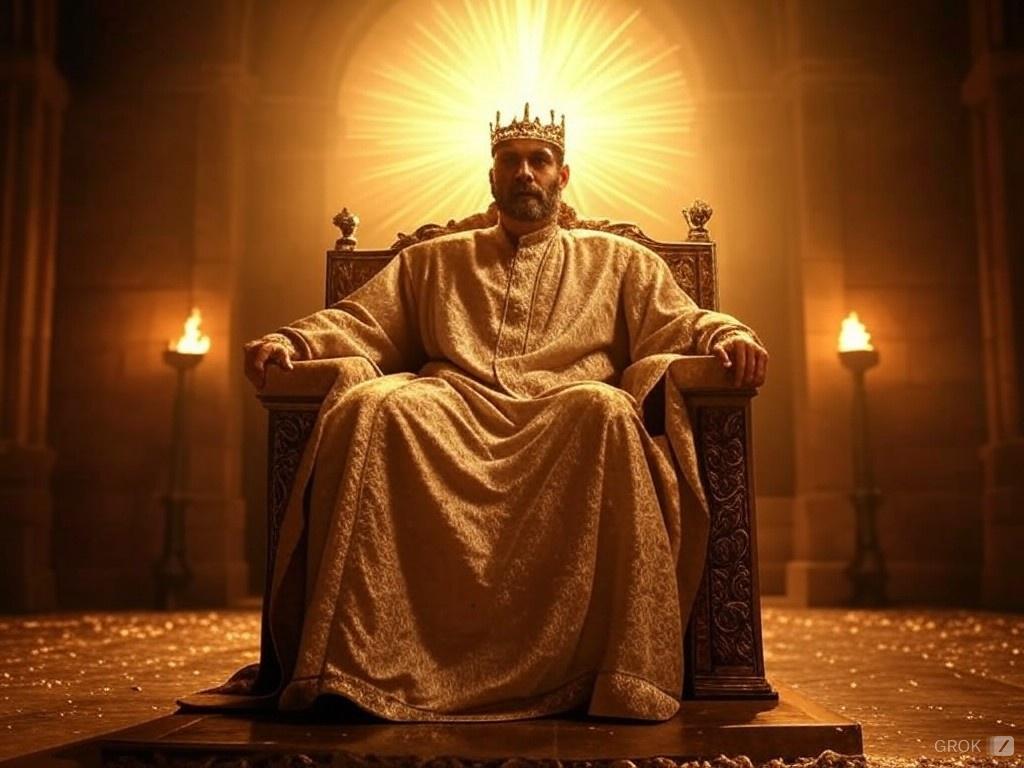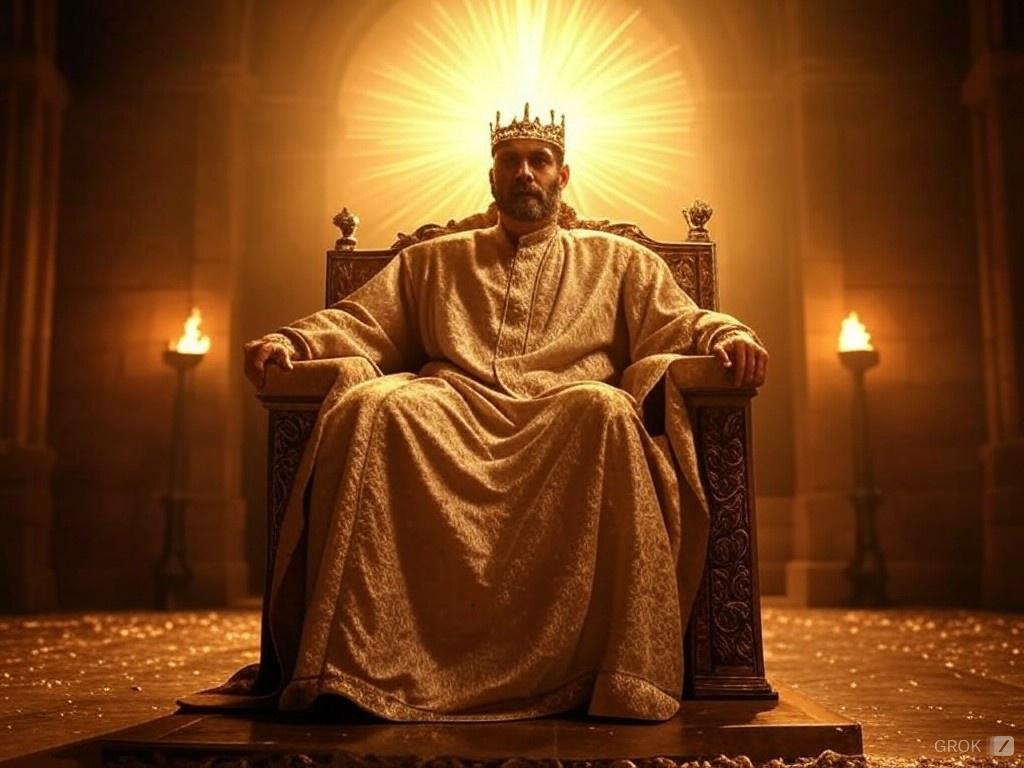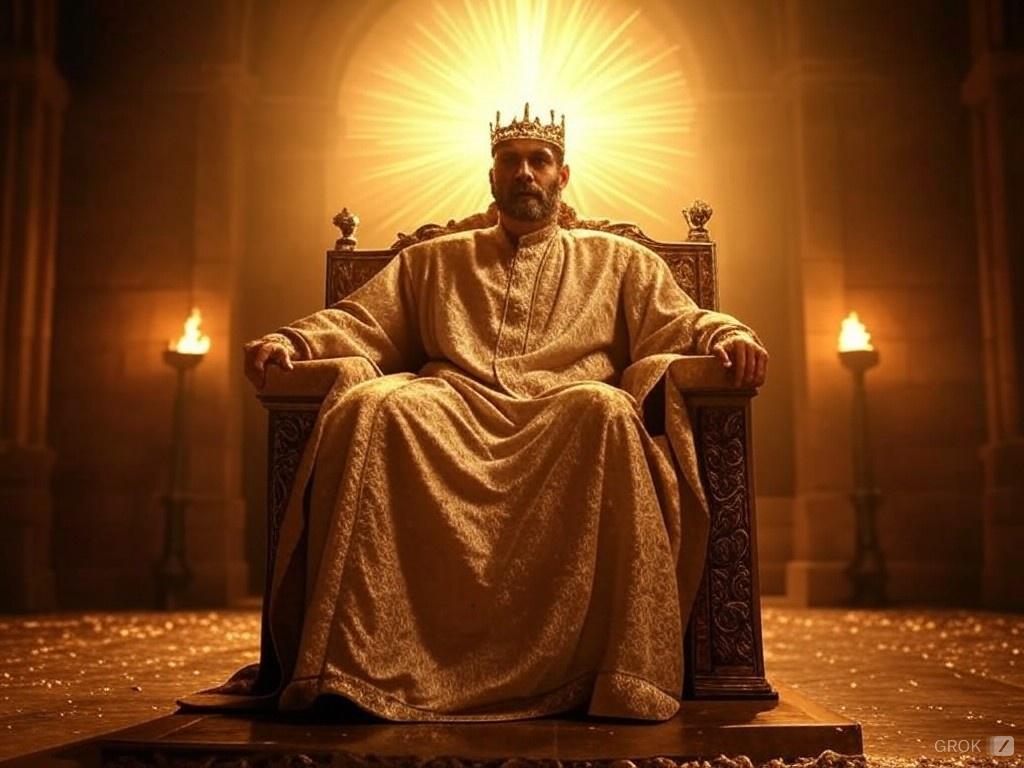Your statement raises complex historical and political issues. Here's a nuanced examination:
**Divine Right of Kings:**
- Historically, the doctrine of divine right was used to legitimize the rule of monarchs by asserting that their authority was divinely ordained. This concept was prevalent in European monarchies and was intended to prevent challenges to royal authority, including revolutions. However, this doctrine did not completely shield monarchs from revolutions; events like the English Civil War and the French Revolution demonstrate that when societal pressures, economic conditions, and ideological shifts reach a tipping point, even religious justifications could not prevent uprisings.
**Israel and the Concept of "Chosen People":**
- The notion of Israel as a "chosen people" stems from biblical texts in Judaism, which describe the Jewish people as chosen by God for a specific covenant. This concept has been interpreted in various ways, from cultural identity to moral and ethical responsibilities.
- In the context of modern geopolitics, this concept is sometimes invoked in discussions about Israel's actions and international relations. However, equating this religious or cultural identity directly with protection from international law oversimplifies the situation. Israel, like all nations, is subject to international law, though its compliance and the international community's enforcement can be debated.
**International Law and Community:**
- Israel's actions are scrutinized under international law, particularly in areas like human rights, occupation, and conflict. The international community, including bodies like the United Nations, has at times criticized or taken measures against Israel's policies in relation to Palestinian territories, showing that no country is entirely shielded from international critique or legal accountability.
**Lessons from History:**
- One lesson might be the danger of conflating religious or cultural identity with legal or political immunity. History shows that no doctrine or belief system can indefinitely protect against the demands for justice, equality, or human rights from either within or outside a society.
- Another lesson could be the importance of distinguishing between religious beliefs and political actions. While a group might see itself as chosen or divinely protected, this does not exempt it from the responsibilities that come with sovereignty, including adherence to international norms and laws.
**Conclusion:**
- The comparison you draw highlights how ideologies or doctrines can be used to frame political and legal discussions. However, it's crucial to approach these topics with a critical eye, recognizing the nuances between religious beliefs, national policies, and international law. The interplay between these elements is complex and requires careful consideration of historical context, contemporary politics, and ethical implications.
Absolutely, the doctrine of divine right frequently went hand-in-hand with claims of absolute power by monarchs. Here's an exploration of this connection:
- **Divine Right and Absolute Power**: The notion of divine right suggested that the monarch's authority came directly from God, thus making the king accountable only to God and not to the people or any earthly institution. This idea was used to justify absolute power, where the king could rule without being bound by a constitution or laws created by any legislative body.
- **Historical Examples**:
- **Louis XIV of France**: Known as the "Sun King," Louis XIV famously declared, "L'État, c'est moi" ("I am the State"), embodying the concept of absolutism where his will was law. His governance was based on the belief that he was divinely ordained to rule with complete control over the state's affairs.
- **James I of England**: He articulated the divine right theory in his writings, claiming that kings were God's lieutenants on earth, which implied that he should have absolute power over his subjects, free from parliamentary interference.
- **Implications for Governance**:
- **Centralization of Power**: Absolute monarchs centralized power, diminishing the influence of nobility, parliaments, or local governance, leading to more centralized state apparatuses.
- **Resistance and Revolution**: The claim to divine right and absolute power often met with resistance. The English Civil War, for instance, was partly a reaction against Charles I's attempts to rule without Parliament, leading to his execution and the temporary establishment of a Commonwealth.
- **Philosophical and Political Opposition**:
- The idea was challenged by Enlightenment thinkers like John Locke, who argued for government by consent of the governed, and Montesquieu, who promoted the separation of powers, both of which directly opposed the notion of absolute, unchecked power derived from divine right.
- **Legacy**:
- Even as the belief in divine right waned, the concept of absolute power has influenced political theory, often serving as a cautionary tale about the dangers of unchecked authority. The transition to constitutional monarchies, republics, and democratic systems in many parts of the world can be seen as a direct response to the excesses associated with divine right and absolutism.
In summary, while the doctrine of divine right provided a theological justification for monarchical rule, it was often the practical claim to absolute power that defined the governance style of these kings, leading to significant political and social upheavals when these claims were challenged.
That's correct. The transition from monarchies where kings wielded absolute, divine-right-based power to those where the monarch was subject to the law largely occurred with the rise of secularism, constitutionalism, and democratic principles. Here's how this evolution unfolded:
- **Emergence of Constitutional Monarchy**:
- This development was notably seen in Britain with the Glorious Revolution of 1688, which established the Bill of Rights in 1689, limiting the powers of the monarch and ensuring that the king or queen could not rule without parliamentary consent. This was a pivotal moment where the monarch's powers were explicitly curtailed, setting a precedent for constitutional governance.
- **Secularization of State**:
- As secular thought gained ground during the Enlightenment, the idea that governance should be based on reason rather than divine mandate began to take root. Philosophers like Thomas Hobbes, John Locke, and later Montesquieu argued for systems where laws were paramount, and rulers were bound by them. This shift was critical in diminishing the theological justification for absolute rule.
- **Legal and Institutional Changes**:
- Over time, legal frameworks were established to codify the monarch's duties and limitations. In many European countries, this meant the development of constitutions or fundamental laws that the monarch was required to uphold. The concept of the rule of law, where everyone, including the king or queen, is subject to the law, became a cornerstone of modern governance.
- **Examples of Transition**:
- **United Kingdom**: The UK evolved from absolute monarchy to a constitutional one where the monarch's role became increasingly symbolic. After the Glorious Revolution, the monarchy was never again absolute in practice.
- **Sweden**: By adopting a constitution in the 19th century, Sweden transformed its monarchy into a constitutional one where the king's powers were significantly reduced.
- **Spain**: After the 1978 Constitution following Franco's death, Spain reestablished a constitutional monarchy where the king's role is ceremonial, with real power vested in elected officials.
- **Impact of Public Opinion and Revolution**:
- Public demand for representation and rights, as seen in revolutions like the French Revolution, forced monarchies to either adapt or face overthrow. The French Revolution, in particular, led to the eventual establishment of a constitutional monarchy before France became a republic, highlighting how far the pendulum could swing against unchecked royal power.
- **Modern Constitutional Monarchies**:
- Today, in countries like Japan, Spain, the United Kingdom, Sweden, and Denmark, the monarch serves more as a head of state with ceremonial duties, while real political power resides with elected officials. The monarch's actions are either guided by or directly subject to laws and constitutional provisions.
This evolution reflects a broader historical trend towards democracy, accountability, and the rule of law, where the personal power of monarchs is significantly reduced in favor of systems designed to ensure governance by and for the people.


